
Contact

Home
Hoaxes & Pranks: Monster Hunters
WOMAN'S REALM
LONDON GOSSIP.
The Queenslander (Brisbane, Qld.)
Date: March 12, 1927
Page Number: 5
(From Our Social Correspondent).
January 20.
All London is amused at a great hoax played on the celebrated explorer, Mr. Mitchell-Hedges, who, in company with others of an enquiring turn of mind, have discovered wonderful things in the North of South America, and regions in that continent hitherto unexplored, and his articles in the Press have been most interesting. Every now and again he comes home, and recently he has been speaking in London, and touching on the young men of the day had been deploring the want of a spirit of adventure they display; in other words, he thinks them degenerate and wanting in manly pluck. Evidently these remarks sank deeply into the hearts of some young Britons. A few days afterwards Mr. Mitchell-Hedges was motoring from Bournemouth to his home, and passing through a lonely road at night, his car was stopped by a man wildly waving his arms. The chauffeur pulled up and was informed a badly wounded man wanted to be taken to hospital. Immediately Mr. Mitchell-Hedges sent his man to make inquiries, and he and his friend but in vain, and as the chauffeur did not return they both went in search of him. They found him lying by the road, tied hand and foot. Then three ruffians started out of a thicket and attacked Mr. Mitchell-Hedges and his friend, and a free fight ensued. They rolled in the mud, and had their clothes torn to ribbons; finally the assailants made off, leaving the two friends in sore straits. When they crawled back to the car with the disabled chauffeur, to their great consternation a suit case belonging to Mr. Mitchell Hughes had disappeared. This was the crux of the whole thing, as it contained most valuable papers, and some £3000 in money and other things. Naturally the police were informed, and a hue and cry was made after the suit case and the men. The Sunday papers were full of the assault, and flaming headlines appeared everywhere. The next day the truth was out, and Mr. Mitchell-Hedges had a letter sent him by the leader of the gang to say that they only intended to prove to him they were not all degenerates, and his suit case, untouched, was returned to him ! Cuts and bruises had to be attended to, and the chauffeur fainted on his way home that night, so the fright was really very realistic ; but Clubland is laughing heartily over the joke. I bear the best of good feeling exists between the combatants, and Mr. Mitchell-Hedges has withdrawn his words—anyway, as regards this gang, who are all public school boys. But he still thinks the young men are not the spirited beings they, should be, and he is doubtless right in many cases ; but its a sweeping assertion, and we may hear of more daring deeds yet!
F. A. Mitchell-Hedges part 11



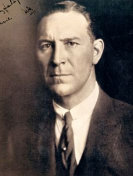
CONTENTS
ARE MEN BECOMING SOFT?
DOMINATION OF WOMEN.
Recorder (Port Pirie, SA)
Date: June 1, 1927
Page Number: 4
Are the young men of this country becoming "soft?"
Mr. F. A. Mitchell-Hedges, the explorer, thinks they are, and that if the softening continues they will come under the complete domination of women, to the great detriment of State and sex alike. Mr. Mitchell Hedges' discoveries and explorations in the buried Maya city in the jungle of British Honduras, to which he was accompanied by Lady (Richmond) Brown, are well known.
He is now organising a campaign for a "renaissance of British man hood," to" prevent domination by the sex which, according to him, is no longer the weaker (says the London "Daily Chronicle").
"The young men ot England are exhibiting the first symptoms of degeneracy, and the women are seizing the opportunity to become dominant," he said. "The spread of Communism, bad trade, and the growing distrust between the classes synchronise's with a serious decline in the virilty of the manhood of this country.
"Take sport as an example. The prestige Britishers held in nearly all games has departed, but women are rapidly coming to the front in this field. This reversal of the laws of nature has begun not only in sport, but in business, and is spreading to politics and government offices.
"Woman revels in her conquests. It is her delight to subjugate and dominate men.She treats them as creatures to obey her whims, and at the same time looks on them with contempt. In a million homes throughout Great Britain today the right type of woman, who is married and has grown-up daughters, deplores this fact, which is leading to the disruption of many a home. Fathers find the greatest difficulty in keeping up with the demands of their grown-up daughters.
"While all this dominance by women is causing a serious state 0f degeneracy among our manhood, it is also undoubtedly resulting in a loss of trade for the reason that we are losing the pioneer spirit which made our great Empire what it is.
"Every clean-minded healthy man should be an adventurer at heart. If he is a captain of industry and sends out his travellers to open up new markets he is doing pioneer work. If he has a shop and opens another branch, that, is pioneering. If he is a salaried man and changes his position to improve his lot it is the spirit of adventure that makes him do it.
"The adventurous spirit is what has made Great Britain the power she has been, and today that power is on the wane.
"The history of all great civilisations of the past is an analogy. There woman worship became such an obsession that men degenerated and empires fell as a consequence.
"It is urgently necessary that in this country there should be a male reniaissance. In our public schools the pioneer spirit must be inculcated, pride of race must predominate, and we must realise that by the-laws of nature man was fashioned to be a leader.
"A national revival of our manhood will, I feel certain, do more than any legislation to wipe out unemployment,
create better trade, bring back to us the respect of other nations which we are in danger of losing, crush Communism, and restore our ideals."

WOMAN EXPLORER.
CENT AMERICAN WILDS.
Cairns Post (Qld.)
Date: September 6, 1927
Page Number: 2
...
Another exciting experience took place when I and Mr. Mitchell Hedges were crossing the main mountain range of Central America by motor car. We were about 13,000ft. up, at the highest point we reached, when we were practically surrounded by volcanoes that were so active I could not help thinking there must be some relation, between them and the unstable politics of the country. But while we were still climbing in the car we rounded one hairpin bend when the car came to a violent stop, and the chauffeur shouted to us to grab the revolvers that were in the pockets of the car.
Ahead I could see a tree, which had been felled to lie across the roadway. That was all, but it was enough for me to know that we were receiving the attentions of one of the gangs of bandits who haunt these mountains. During the half-hour it took our chauffeur and the man with him to move that tree trunk I sat inside thc car with my revolver ready at the window.
Perhaps some shots we fired in the air to inform the bandits that we were armed frightened them away, but the fact is we never saw them. After being worked up to the prospect of a stand-up fight with real brigands, I was deeply disappointed when it did not take place. I may have more luck next time.
...

How many explorers used a chauffeur?
FOR LIBEL
Explorer Sues Paper
SEVERE CROSS-EXAMINATION
The Daily News (Perth, WA)
Date: February 9, 1928
Page Number: 7
LONDON. February 8.
The explorer and author, Mr. Frederick Albert Mitchell-Hedges, is claiming damages from the "Daily Express" for libel alleged to be contained in a report to the effect that the hold-up on January 15, 1927, was a hoax, and a publicity enterprise.
Mr. Mitchell-Hedges detailed his adventures, and denied that he had previous knowledge of the attack. Mr. W. A. Jowitt, K.C., sharply cross-examined plaintiff as to whether he was a real explorer of the British bulldog breed or a newspaper stuntist.
Questioned about his war record, Mr. Mitchell-Hedges said he volunteered for the army, but was totally rejected. He also tried to enlist in America, but failed.
SEVERE CRITICISMS.
Mr. Jowitt went on to question him regarding his claim that he discovered an unknown race in Panama, and suggesting that Mr. Mitchell-Hedges did not know a word of their language, though he claimed to understand the meaning of the conversations of tribal chiefs.
Mr. Mitchell-Hedges admitted that he was bankrupt in 1911.
TYPES OF EXPLORERS.
Mr. Jowitt: I started by pointing out the distinction between two types of explorers; one who tells of his adventure modestly and in a scientific manner, and the other who has bogus adventures and publicity stunts. You see why I am asking these questions?
Mr. Mitchell-Hedges: Oh, yes!
The case was adjourned.


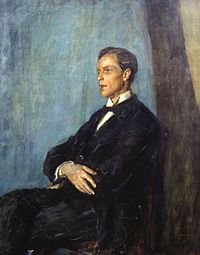

William Allen Jowitt, 1st Earl Jowitt PC, KC (15 April 1885 – 16 August 1957), was a British Labour politician and lawyer
The Argus (Melbourne, Vic.)
Date: February 10, 1928
Page Number: 11

FAKE HOLD-UP
English Libel Action
EXPLORER CROSS-EXAMINED
The Daily News (Perth, WA)
Date: February 10, 1928
Page Number: 1
LONDON. February 9.
Mr. W. A. Jowitt, K.C., who is appearing for the "Daily Express" in the Mitchell-Hedges libel claim, continued his cross-examination of Mr. F. A. Mitchell-Hedges to-day. The Court was crowded, there being many fashionable women present.
Mr. Jowitt's questions were directed at showing that Mitchell-Hedges was aware that a hold-up was being arranged. He frequently saw the men concerned. Mitchell-Hedges admitted now he knew an abortive attempt to hold up his car was made on January 6, though he denied that he told his chauffeur to stop and return to London when the place of the hold-up was passed without result.
EXPLORER'S CHAUFFEUR.
Mr. Jowitt also elicited the statement that Mitchell-Hedges saw the attackers between the 7th and the 14th. At this time Mitchell-Hedges had a new chauffeur, Kenneth Taylor, who had been engaged in the abortive attack on the 6th. His brother, Eddie Taylor, was driving the car of the attacking party on January 14.
FOUR SHRUNKEN HEADS.
It was explained that they learnt these facts later.
Mr. Jowitt pressed Mitchell-Hedges to explain, why he carried four shrunken heads in his car.
Mitchell-Hedges: I kept them, in my bedroom every night.
Mr. Jowitt: They were very precious.
Mitchell-Hedges: A sort of mascot.
Mitchell-Hedges said he also had with him in the car a cheque for £3,125, the proceeds of his share in a deal. He had not notified the police because he would have seemed ridiculous.
FIGHTING FOR MY LIFE.
He added: "This is a serious matter to me. I am fighting for my life." When informed the whole thing was a practical joke, he was fiendishly angry, but later shook hands. He had threatened to prosecute Bagot Gray, who took the whole blame, but I would have been the laughing-stock of Britain if I had done so."

ART AND ADVERTISING.
The Register (Adelaide, SA)
Date: February 11, 1928
Page Number: 8

Our matter-of-fact historians do not tell us that Sir Walter Raleigh ever requested a few obliging friends to knock him down and rob
him in the interests of "publicity." We should not believe them if they did. It has never even been suggested that, when the great
Elizabethan threw his cloak across a puddle before the Virgin Queen, he was prompted by a desire for cheap notoriety. It is a sign
of the times that Mr. Mitchell-Hedges, a less famous explorer, as a sequel to his having been waylaid by a gang of practical jokers
on the Portsmouth road in January of last year should have been accused, by the London Daily Express, of complicity in an affair designed
to advertise himself, his lectures, and his books. The facts are that Mr. Mitchell-Hedges, and Mr. Colin Edgell, secretary of the
London Young Liberals' Federation, were motoring from London to Bournemouth when, at about midnight, six members of the Young Liberals'
Federation stopped their car, engaged its occupants "in Rugby scrum fashion" (as one of the participants afterwards explained), and,
having bound the explorer, his companion, and his chauffeur, decamped with a brief bag, which contained, in addition to several documents
of supposed international consequence, and a cheque for the modest sum of £3,125, "four specimens of human heads 'shrunk' by Central
American Indians by a secret process." The police were informed; but next day, while Scotland Yard was concentrating on the problem,
it was announced that Mr. Mitchell-Hedges had been the victim of a practical joke, at the hands of several virile young patriots who
had resented the explorer's public lamentations over what was briefly and eloquently described as "the lack of 'guts' in the British
youth of to-day." It was explained that the attack had been planned by a young lady, whose faith in the viscera of her gentlemen friends
had been amply justified.
Mr. Mitchell-Hedges, in demanding damages for libel, complains that the theory
of collusion advanced by the Daily Express has damaged the reputation which he was alleged to have been eager to enhance. This does
not seem to be denied. For the defence, it is contended that the explorer, not without difficulty, kept a rendezvous with his assailants;
that the chauffeurs of the two motor cars concerned in the meeting were brothers; that the whole party rolled in the mud and tore
their clothes to give an air of verisimilitude to their intended narrative; and that the contents of the explorer's bag had been carefully
selected, to improve the story still more for newspaper purposes. If the Daily Express really believes that this is the truth of the
matter, it is doing a service to the cause of honest journalism by attempting to prove it. It would be a disastrous thing if obscure
authors were to get into the habit of advertising their wares in the papers with the aid of sensational fiction disguised as news.
The unfortunate reader, alighting, for example, upon the announcement that Mr. M. N. Dacity, the rising playwright, had been captured
by brigands, and was being held to ransom in the wilds of Whitechapel, would be torn between his desire to sympathize with the victim
of this extraordinary outrage, and his instinct to write and congratulate him upon his enterprise. If, in the illustrated journals,
Mr. Harold V. Hardupp, the author of Fury's Fierce Flames, were depicted standing in his pyjamas amid the smoking ruins of his country
cottage, it would be difficult to decide whether the young novelist had been really stricken by fate, or had himself struck a match
to illumine his genius.
It must be admitted, of course, that, if this sort of thing were to become general
among persons combining the artistic temperament with the commercial instinct, the public would not be blameless. The literary taste
of the multitude is rather too apt to be whetted by non-literary considerations. People are encouraged to read a book by what they
hear of its author, rather than by what is said of his work. For months past, America's "best seller" has been Colonel Lindbergh'sUs, its nominal author an air pilot whose fame rests upon a flight across the Atlantic. He has reversed the process whose development
we are discussing; for he achieved notoriety first, and gave his name to a book afterwards. The success of that book, however, cannot
but stimulate the mental processes of impecunious professional writers. They see very clearly that they could write "best sellers,"
too, if only they could do something else even more sensational, or at least have something sensational and not needlessly unpleasant
done to them. It need hardly be remarked that literary genius can never confidently be inferred from the enterprise, physical courage,
or adventurous spirit of the writer. Dickens achieved fame without arranging with Bill Sikes to burgle his house for him; Fielding's
claim to be remembered amid beloved rests on something better than a supposed attempt on the part of Jonathan Wild to murder his biographer;
and Shakespeare's pre-eminence in letters owes nothing to his having consented to be kidnapped by the Three Witches.
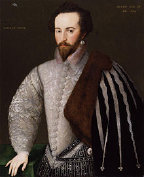

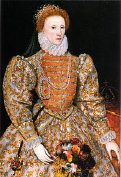

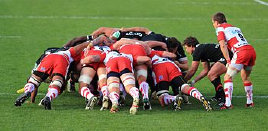

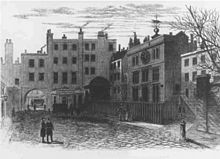

Scotland Yard
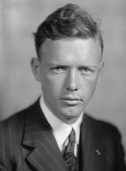

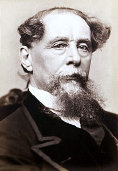

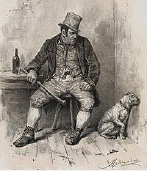

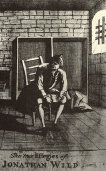

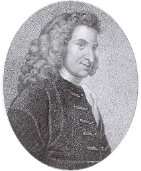

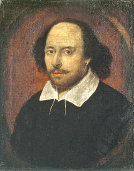

Lindbergh
Dickens
Sikes
Fielding
Wild
Shakespeare
HE IS AN IMPOSTOR
Mitchell-Hedges Libel
EVIDENCE OF A PRANK
The Daily News (Perth, WA)
Date: February 14, 1928
Page Number: 1
LONDON. February 13.
Opening the defence in the Mitchell-Hedges-"Daily Express" libel action, Mr. Jowitt, K.C., said: "I suggest Mitchell-Hedges is an impostor. He is making a claim he cannot substantiate. There is no doubt he has been in Panama, that he talked with Indians and had certain interesting experiences, but the man who has written up those experiences as Mitchell-Hedges is an impostor."
DETAILS OF THE HOAX
William Shaw, chartered accountant, of Dublin, one of the attackers, detailed the abortive hold-up on January 6 and the successful one of January 14, when Kenneth Taylor was tied up, but neither Mitchell-Hedges nor Edgell was knocked down and hurt. Anyway Edgell deliberately made the grass untidy in order to suggest a scruffle. The whole thing was a prank to advertise the Monomarks, the idea being that Mitchell-Hedges' bag should be sensationally discovered by means of the monomark.
ASHAMED OF STATEMENT
Cross-examined Shaw admitted that after Mitchell-Hedges issued the writ against the "Daily Express" he (Shaw) signed a statement to Mitchell-Hedges' solicitor that Mitchell-Hedges and Edgell were in no way privy to the hoax. He added he was now thoroughly ashamed of signing the statement.


Monomark—used for a system employed chiefly in England by which an individual or a firm may register a combination of letters or figures as an identification mark
TWO MEN ARRESTED
False Pretences Alleged
The Daily News (Perth, WA)
Date: February 15, 1928
Page Number: 1
LONDON. February 14.
Two men were arrested in Mitchell-Hedges' flat and have been charged with attempting to obtain £1,000 by false pretences.
The prosecution alleged that they offered to influence the libel case jury on the payment of £1,000.
Mitchell-Hedges informed the police.

IS HE AN IMPOSTOR?
Mitchell-Hedges Case
STRONG SUMMING-UP
The Daily News (Perth, WA)
Date: February 15, 1928
Page Number: 1
LONDON. February 14.
The Lord Chief Justice (Baron Hewart), summing up in the Mitchell-Hedges libel case against the "Daily Express," said it was remarkable that Mitchell-Hedges had not called Bagot Gray, the originator of the hoax, and
other participants to swear that Mitchell-Hedges was not associated with it. It would not be surprising had the jury intimated, after Mitchell-Hedges' evidence, that they were satisfied he was in the hoax.
"If you obtain the title of Fellow of the Royal Georgraphical Society or Fellow of the Royal Zoological Society for a guinea, the thing becomes grotesque. When you see it enumerated on the title page of a book or a menu card you cannot help feeling the man must be an impostor. The jury may not think Mr. Jowitt, K.C., put the case too high when he said Mitchell-Hedges is an impostor."
The jury returned a verdict for the defendants, with costs.

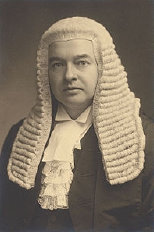

The Sydney Morning Herald (NSW)
Date: March 8, 1928
Page Number: 11
James McCallan and Frederick Arnold, who were alleged to have offered to influence the jury in the recent Mitchell-Hedges libel action against the "Dally Empress," were sentenced to six months' imprisonment, and to pay a fine of £50. The defence urged that the matter was a clumsy attempt at a hoax, committed under the influence of liquor.

Rich Cornish Oysters
The Daily News (Perth, WA)
Date: June 14, 1928
Page Number: 8
Testimony to the Cornish oyster was paid by Mr. Mitchell Hedges, the explorer, at the third Cornish oyster feast at Falmouth. Although he had sampled fish in various parts of the world, he said, none could compare for richhess of flavor with Cornish products.
...

From this time, a chastened and disgraced Mitchell-Hedges seems to have largely disappeared from the public eye until re-emerging again in 1930. Does he present himself as a humbled and tempered individual this time around or does he come out with all guns blazing?
Don't ask yourself what you'd do - ask yourself what F. A. Mitchell-bloody-Hedges would do...
(I'm sure he'd kick and arse or two. That's what Mitchell-Hedges'd do.)










































